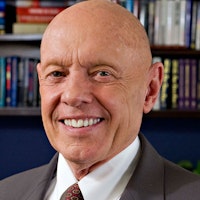If our intent is to serve, to bless others, without self-concern, a by-product of our service comes within—a kind of psychological, emotional, and spiritual reward in the form of internal security and peace.
If our intent is to serve, to bless others, without self-concern, a by-product of our service comes within—a kind of psychological, emotional, and spiritual reward in the form of internal security and peace.
Stephen R. Covey

Our Intent Is to Serve
Topic: Serving Others
Anonymous service is particularly important. The philosophy that we will find our life when we lose it in service is a true paradox. If our intent is to serve, to bless others, without self-concern, a by-product of our service comes within—a kind of psychological, emotional, and spiritual reward in the form of internal security and peace. Such a reward comes in the second mile… If our interest is to serve others without self-concern, we are inwardly rewarded with increased internal security and an abundance mentality.
Stephen R. Covey was born in Salt Lake City, Utah, on October 24, 1932, and he passed away on July 16, 2012. He was more than an educator and author; he was also a family man deeply rooted in his faith. Covey was a member of The Church of Jesus Christ of Latter-day Saints. His belief in God and universal principles significantly influenced his teachings and writings. Married to Sandra Merrill Covey for over 50 years, the couple had nine children. Covey's family life and faith were central to his understanding of leadership and personal effectiveness, themes he explored in books like "The 7 Habits of Highly Effective Families."
Covey was a professor at the Jon M. Huntsman School of Business at Utah State University at the time of his death. But he was best known for his book "The 7 Habits of Highly Effective People." This book was part of a broader collection of works that also includes titles like "First Things First," "Principle-Centered Leadership," and "The 8th Habit." These books weren't just about being effective in business; they were about how to live a balanced, meaningful life.
Stephen R. Covey left a lasting impression through his teachings and writings, but perhaps his most enduring legacy is the way he lived his life. He emphasized the importance of character, integrity, and ethical leadership. These were not just principles he talked about; they were principles he lived by. His lessons continue to influence people all over the world, encouraging them to lead lives that are not only effective but also grounded in good values.
Covey, Stephen R., [Principle-Centered Leadership] pp. 141, 160.

Stephen R. Covey
Theme: Serving

About This Stephen R. Covey Quotation [Commentary]
Stephen R. Covey teaches that when “our intent is to serve, to bless others, without self-concern,” something essential is awakened within. The emphasis is not on external reward, but on the internal shift that occurs when service is offered freely. Without striving or self-interest, a “by-product of our service comes within”—a quiet sense of “psychological, emotional, and spiritual reward in the form of internal security and peace.” The deeper intention is to bless, not to be seen. And it is from this inward posture that the reward arises, unbidden.
In the broader passage, Stephen R. Covey affirms the paradox that “we will find our life when we lose it in service.” Anonymous acts carry a particular weight, not because they are more virtuous, but because they reflect a letting go of self-concern. He writes, “Such a reward comes in the second mile,” indicating that the full effect of service is revealed when we move beyond duty and into sincere generosity. It is in this second mile—unpressured, uncredited—that the internal reward takes root.
Stephen R. Covey closes the passage by returning to the core insight: “If our interest is to serve others without self-concern, we are inwardly rewarded with increased internal security and an abundance mentality.” This abundance is not material but interior—a deeper confidence, a widening of perspective. The act of blessing others without expectation creates space for transformation within the one who serves. What begins as service to another becomes, in its truest form, a source of peace and inward clarity.
An Additional Stephen R. Covey Quotation
Resources
Related Quotes
Copyright © 2017 – 2026 LuminaryQuotes.com About Us